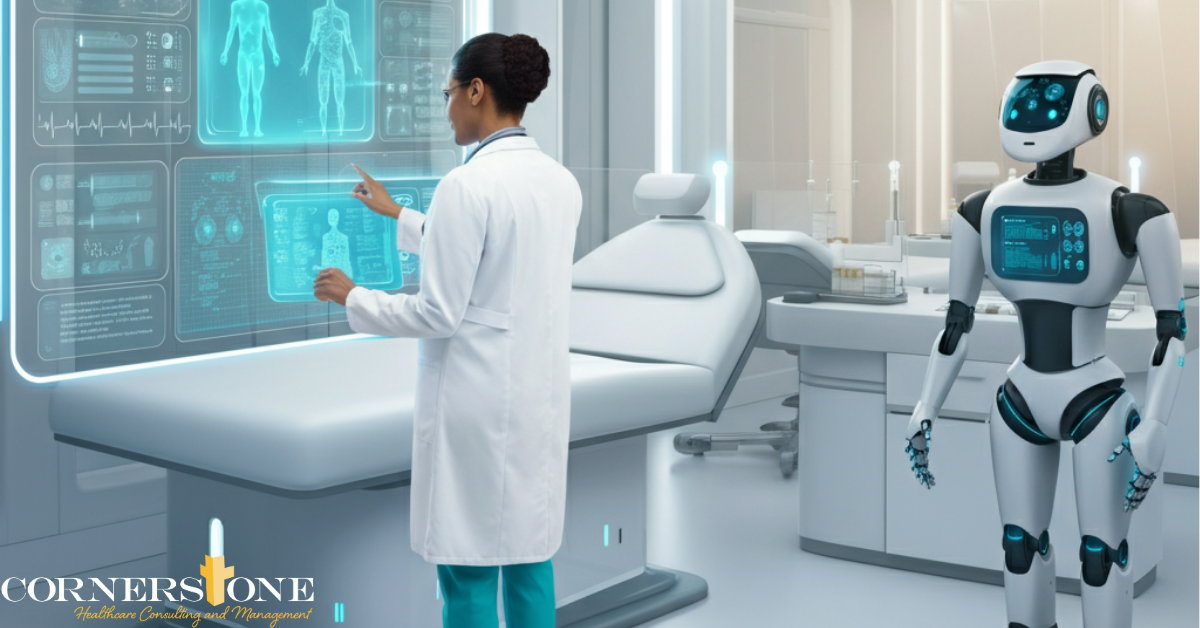AI In Medical Practices
The healthcare industry is undergoing a profound transformation, and at the heart of it is a powerful combination of artificial intelligence (AI) and automation. These emerging technologies are reshaping the way medical practices operate—making them faster, smarter, and more efficient. From diagnosing illnesses to managing patient data, AI is becoming an indispensable tool for forward-thinking healthcare providers.
🧠 Smarter Diagnostics with Artificial Intelligence
AI algorithms can now analyze imaging scans, lab results, and patient histories with astonishing accuracy. In some cases, they can even outperform human clinicians in spotting abnormalities. For example:
- AI can detect signs of cancer in mammograms earlier than radiologists.
- Machine learning tools are improving the accuracy of diagnosing neurological conditions like Alzheimer’s and Parkinson’s.
- Predictive analytics can flag high-risk patients for early intervention.
These tools don’t replace the physician—they can enhance clinical judgment, reduce human error, and support faster decision-making.
📊 Automation Streamlines Administrative Workflows
Medical staff spend countless hours on administrative tasks—scheduling appointments, processing claims, updating charts. Automation tools are now handling much of this busywork through:
- Automated appointment reminders and check-in systems
- Voice recognition for faster charting and note-taking
- Electronic prior authorization submissions
- Smart billing tools that reduce denied claims and payment delays
By automating these workflows, practices are freeing up time and resources that can be redirected to patient care.
🤖 Virtual Assistants and Chatbots Improve Access
AI-driven chatbots and virtual assistants are now being integrated into websites and patient portals to:
- Answer FAQs about services, billing, and office policies
- Triage patient symptoms before a visit
- Direct patients to the right provider or appointment type
This provides 24/7 support and reduces phone call volume for staff—creating a better experience for both patients and providers.
🔐 Improved Data Security and Patient Privacy
With the rise of digital tools comes the responsibility to protect patient data. AI is now playing a critical role in:
- Detecting suspicious login behavior or data breaches
- Flagging HIPAA compliance risks in real-time
- Encrypting and managing access to sensitive medical records
These intelligent systems can alert administrators before a threat becomes a breach—giving practices peace of mind.
💡 What This Means for Private Practices
Whether you’re a solo practitioner or part of a growing group, AI and automation are no longer just for hospitals or large health systems. Smaller practices can benefit too by:
- Reducing overhead costs
- Shortening wait times
- Enhancing diagnostic confidence
- Improving overall patient satisfaction
Those who embrace these technologies are not replacing human connection—they’re amplifying it.
🏁 Final Thoughts
AI and automation are not the future—they’re the now of healthcare. Practices that adopt and adapt will find themselves better equipped to navigate modern challenges while delivering more personalized, efficient care.
If you’re a physician or practice owner wondering how to bring automation into your clinic, now is the time to explore the possibilities.


